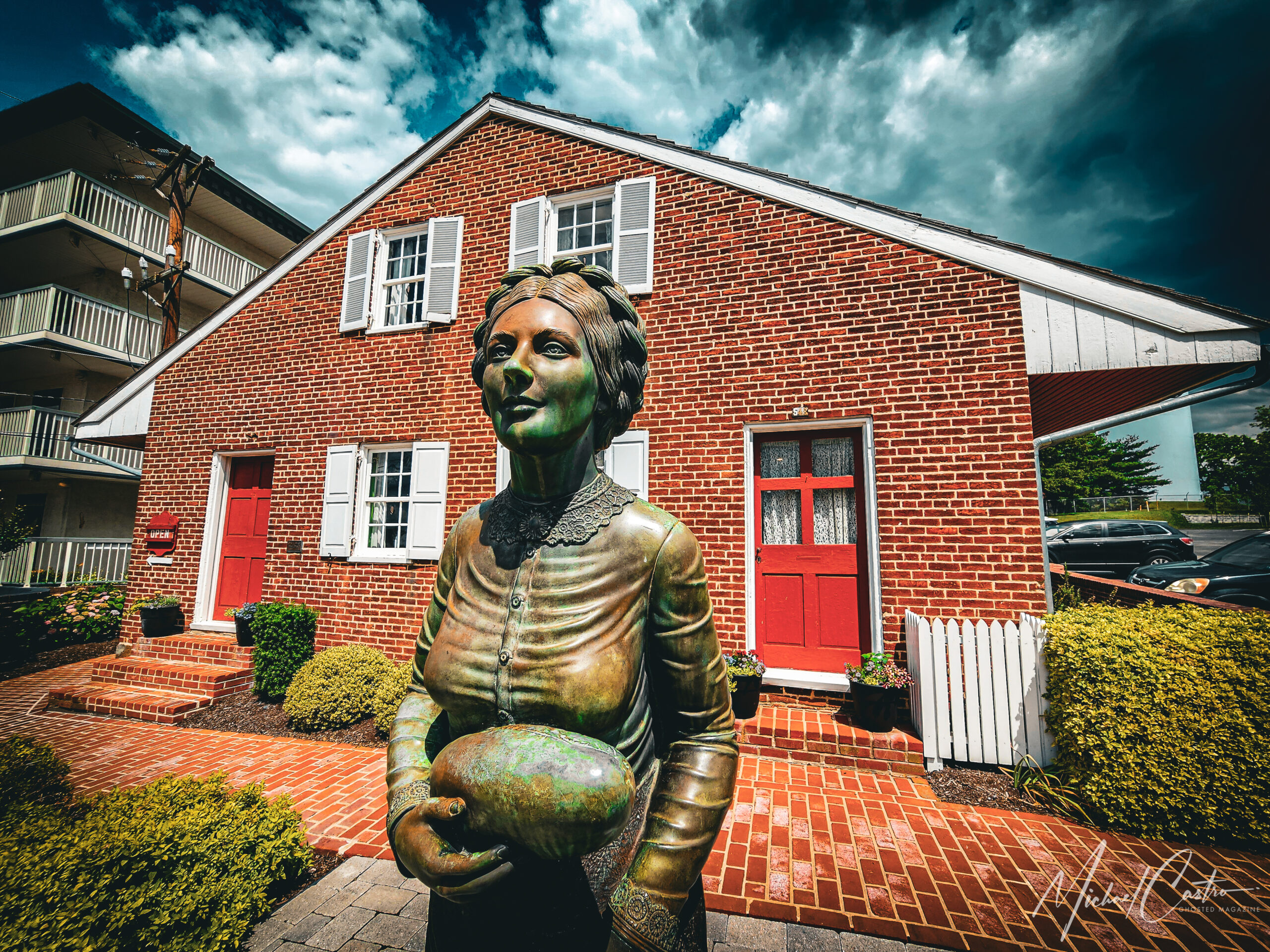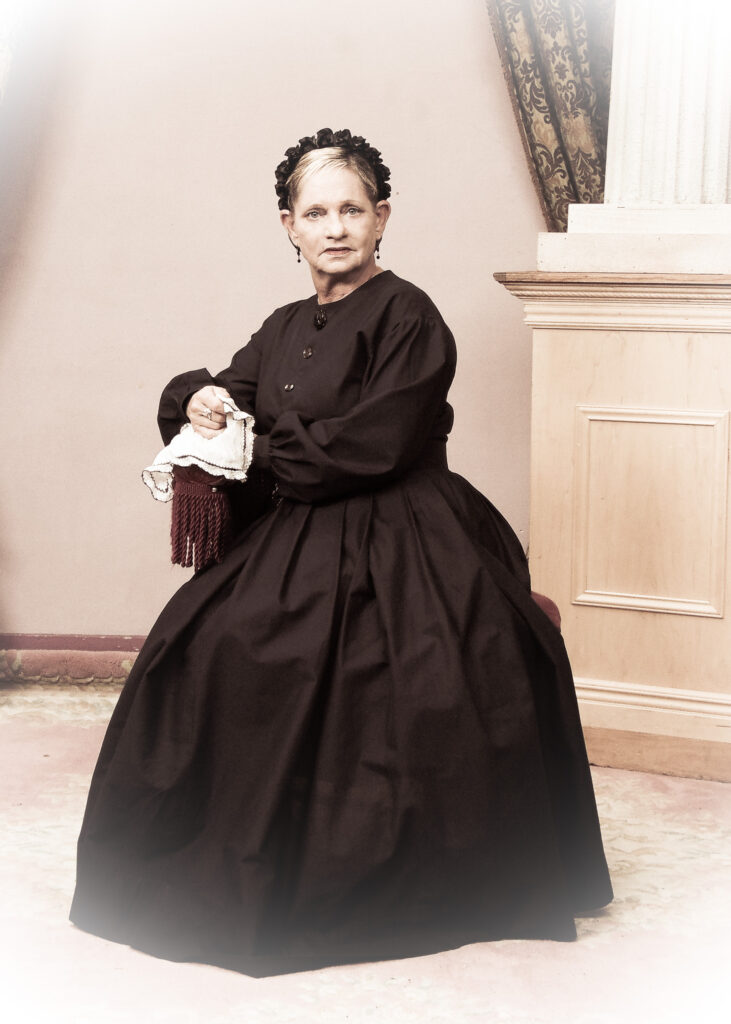Your cart is currently empty!

Jennie Wade House
The Jennie Wade House in Gettysburg, Pennsylvania, is a site of profound historical significance, intimately connected to the Battle of Gettysburg and the personal tragedies that accompanied it. The house commemorates the life and death of Mary Virginia “Jennie” Wade, the only civilian killed during the Battle of Gettysburg. Today, the Jennie Wade House serves as a museum, preserving the legacy of Jennie Wade and providing visitors with a poignant reminder of the human cost of war.
Mary Virginia Wade, known as Jennie, was born on May 21, 1843, in Gettysburg, Pennsylvania. She was the daughter of James and Mary Wade and grew up in a modest household with her siblings. Jennie worked as a seamstress alongside her mother, living a relatively ordinary life until the outbreak of the Civil War.
The Battle of Gettysburg, fought from July 1 to July 3, 1863, was one of the most significant and bloodiest battles of the American Civil War. It marked a turning point in the conflict, with Union forces repelling the Confederate invasion of the North. The battle resulted in massive casualties on both sides and had a profound impact on the town of Gettysburg and its residents.
Jennie Wade was staying at her sister Georgia’s house on Baltimore Street in Gettysburg during the battle. The house, now known as the Jennie Wade House, was situated in a dangerous area, with Union and Confederate forces clashing nearby. As the battle raged around them, the Wade family took refuge in the house, hoping to avoid the deadly crossfire.
On the morning of July 3, 1863, Jennie Wade was in the kitchen kneading dough to bake bread for Union soldiers. A stray bullet from a Confederate sniper pierced two doors and struck her in the back, killing her instantly. Jennie Wade was just 20 years old at the time of her death. Her mother and sister, along with others in the house, were left to mourn her sudden and tragic passing.
Jennie Wade’s body was initially moved to the cellar for protection until it could be properly buried. She was later laid to rest in the Evergreen Cemetery in Gettysburg. Her death, the only civilian casualty of the battle, underscored the indiscriminate nature of war and the toll it took on ordinary citizens.
The Jennie Wade House has been preserved as a historical site and museum, offering a glimpse into the life and times of Jennie Wade and the civilian experience during the Battle of Gettysburg. The house has been meticulously restored to its 1863 appearance, with period furnishings and artifacts that recreate the atmosphere of the Civil War era.

The museum offers guided tours that provide detailed accounts of Jennie Wade’s life, her role during the battle, and the circumstances surrounding her death. These tours are designed to educate visitors about the personal stories behind the larger historical events and to honor the memory of those who lived through this tumultuous period.
Jennie Wade has come to symbolize the civilian sacrifices made during the Civil War. Her story is a powerful reminder of the impact of the conflict on non-combatants and the human cost of war. The Jennie Wade House serves as a tribute to her memory and to the resilience of those who endured the hardships of the battle.
Jennie Wade’s legacy is commemorated in various ways, including an annual wreath-laying ceremony at her grave in Evergreen Cemetery. Her story is featured in numerous books, articles, and documentaries about the Battle of Gettysburg, ensuring that her memory is preserved for future generations.
Like many historic sites in Gettysburg, the Jennie Wade House is reputed to be haunted. Numerous visitors and paranormal investigators have reported unusual occurrences, such as the sound of footsteps, unexplained voices, and sightings of Jennie’s apparition. These reports add an element of intrigue to the historical narrative, drawing both history enthusiasts and those interested in the supernatural.
The Jennie Wade House is a popular stop on Gettysburg’s ghost tours, which explore the town’s haunted history. These tours blend historical facts with tales of paranormal activity, offering a unique perspective on the site’s significance and its lingering impact on the present.
The Jennie Wade House in Gettysburg, Pennsylvania, holds a significant place in American history as a symbol of civilian sacrifice during the Civil War. Jennie Wade’s tragic death during the Battle of Gettysburg serves as a poignant reminder of the human cost of war and the impact of the conflict on ordinary citizens. The preservation of the Jennie Wade House as a museum and historical site ensures that her story, and the broader history of the Battle of Gettysburg, continues to be remembered and honored. Through educational tours, commemorative events, and its reputation as a haunted location, the Jennie Wade House remains a vital part of Gettysburg’s rich historical and cultural heritage.




 designed and developed by
designed and developed by